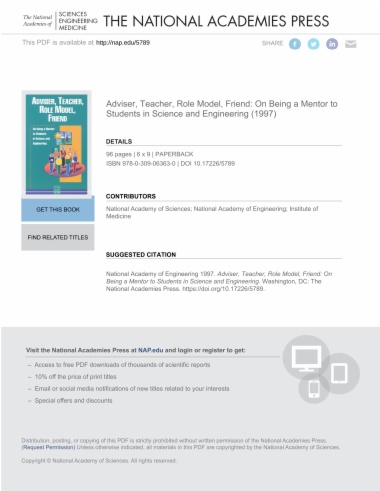

This guide offers helpful advice on how teachers, administrators, and career advisers in science and engineering can become better mentors to their students. It starts with the premise that a successful mentor guides students in a variety of ways: by helping them get the most from their educational experience, by introducing them to and making them comfortable with a specific disciplinary culture, and by offering assistance with the search for suitable employment. Other topics covered in the guide include career planning, time management, writing development, and responsible scientific conduct. Also included is a valuable list of bibliographical and Internet resources on mentoring and related topics.